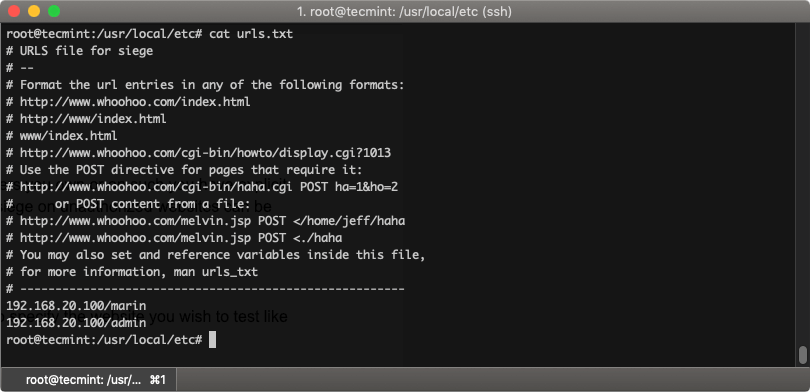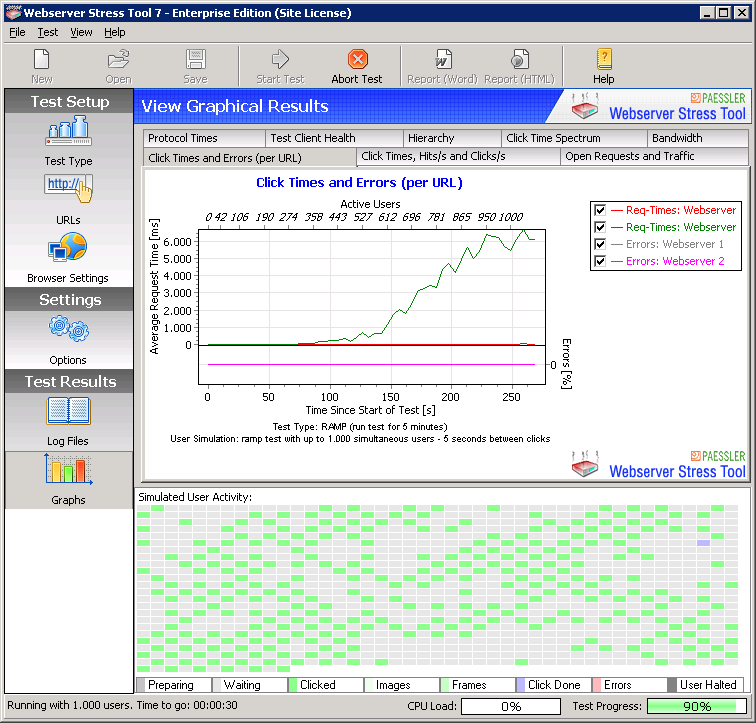Webserver Stress Tool Editor's Review
- Web Server Stress Test Tool Windows 7
- Windows Server Tools 10
- Web Stress Test Tool
- Web Server Stress Test Tool Windows 8.1
- Windows Server Tools Download
Webserver Stress Tool is a powerful HTTP-client/server test application designed to pinpoint critical performance issues in your web site or web server that may prevent optimal experience for your site's visitors. MemTest86 is one of the oldest and most popular tools to stress test RAM. It has a unique approach to analyze RAM and check for all kinds of errors. Unlike other standard applications, it’s a bootable program and that’s what makes it interesting. Just like you install Windows OS, you will have to boot this program from a USB thumb drive. But testing scenarios such as this using a stress testing tool are crucial to find bottlenecks in a Web application. It's not always easy to pinpoint the bottleneck as your weakest link (in this case the SQL Server on a relatively low power machine) can drag down all other aspects of the application. Apache JMeter may be used to test performance both on static and dynamic resources. It can be used to simulate a heavy load on a server, group of servers, network or object to test its strength or to analyze overall performance under different load types.
Webserver Stress Tool is a professional solution for simulating users who access a webserver simultaneously. Using this application is quite easy, although it's designed for advanced users. All you need to do is select the URL of your webserver, the number of simulated users, and how often each user clicks a link on your website. There are three types of tests available. The first type of test allows you to specify the number of clicks which Webserver Stress Tool generates. When you select the second type of test, the application runs the test with constant load for a specified time. The third type of test enables you to test a webserver under increasing load.Web Server Stress Test Tool Windows 7
The gathered statistical data is displayed in the main application's window, but it is also exported into a HTML page. The program creates logs which contain extensive details about the way your webserver performed during the test. Another very nice feature is that the program automatically creates graphs, depicting the used bandwidth, the client computer's performance, the user wait time, and so on.I tested my website using this program and I have to say I am impressed by the volume of information it displays. After the first test was finished, the program automatically opened a HTML page containing the results. After I looked through the results, I started another test. When the second test was started, all the information about the first one was deleted. So be sure to explicitly export the test results, unless you want to lose them when starting another test.
Pluses: It's possible to modify the headers sent by Webserver Stress Tool when connecting to a webserver. It's also possible to select whether you want to download frames/iframes, to follow meta refresh tags, to download image URLs, to use cookies, and so on. However, the most advanced feature of this program is that it supports running custom scripts. The scripts must be written in a special language, but are well documented and pretty easy to use if you have a little bit of programming experience.
Windows Server Tools 10
Drawbacks / flaws:
 In conclusion: I don't have any doubt that this program can be very helpful for analysing how a webserver behaves under load (stress). You have 14 days to decide for yourself whether it's worth buying this application.
In conclusion: I don't have any doubt that this program can be very helpful for analysing how a webserver behaves under load (stress). You have 14 days to decide for yourself whether it's worth buying this application. version reviewed: 7.1.1.233
| What is OpenSTA? Open, Systems Testing Architecture |
OpenSTA is a distributed software testing architecture designed around CORBA, it was originally developed to be commercial software by CYRANO. The current toolset has the capability of performing scripted HTTP and HTTPS heavy load tests with performance measurements from Win32 platforms. However, the architectural design means it could be capable of much more.
| Web Load Testing HTTP Stress & Performance Tests |
Web Stress Test Tool
The applications that make up the current OpenSTA toolset were designed to be used by performance testing consultants or other technically proficient individuals. This means testing is performed using the record and replay metaphor common in most other similar commercially available toolsets. Recordings are made in the tester's own browser producing simple scripts that can be edited and controlled with a special high level scripting language. These scripted sessions can then be played back to simulate many users by a high performance load generation engine. Using this methodology a user can generate realistic heavy loads simulating the activity of hundreds to thousands of virtual users.
Web Server Stress Test Tool Windows 8.1
| Data Collection Timers, Windows Performance & SNMP Statistics |
Results and statistics are collected during test runs by a variety of automatic and user controlled mechanisms. These can include scripted timers, SNMP data, Windows Performance Monitor stats and HTTP results & timings. Much of the data logged can be monitored live during the test runs; once test runs are complete, logs can be viewed, graphed, filtered and exported for use by more sophisticated report generation software.
Completely Free & Open Source |
The OpenSTA toolset is Open Source software licensed under the GNU GPL (General Public License), this means it is free and will always remain free. If you wish to build your own customized version of OpenSTA or take part in its development then the complete toolset source code, buildable in Microsoft Visual Studio 6, and all related information is available from OpenSTA.SourceForge.net, the developer home site.
Windows Server Tools Download
| Community Supported Development Driven by the Users |
Much more information can be found out about OpenSTA by checking the online documentation or simply downloading and installing the toolset. The FAQ contains lots of other useful background information and helpful tips, this should be the first place you look if you need help with anything not covered in the documentation. There is no need to stop at reading the FAQ either, it is hosted on the OpenSTA Community Portal and, in common with every other resource on this site, it is user editable. This site is a great place for every OpenSTA user to share their experiences with the product and help others learn and use OpenSTA: Remember, the toolset is completely free and any time the developers spend helping users is time they are not enhancing, or fixing problems with, the toolset. By helping other users you are in fact helping OpenSTA and its community become stronger. The premier place for free OpenSTA support and discussions is the OpenSTA Users Mailing List, here the developers and many long time users of this toolset give as much help as their freetime will allow.